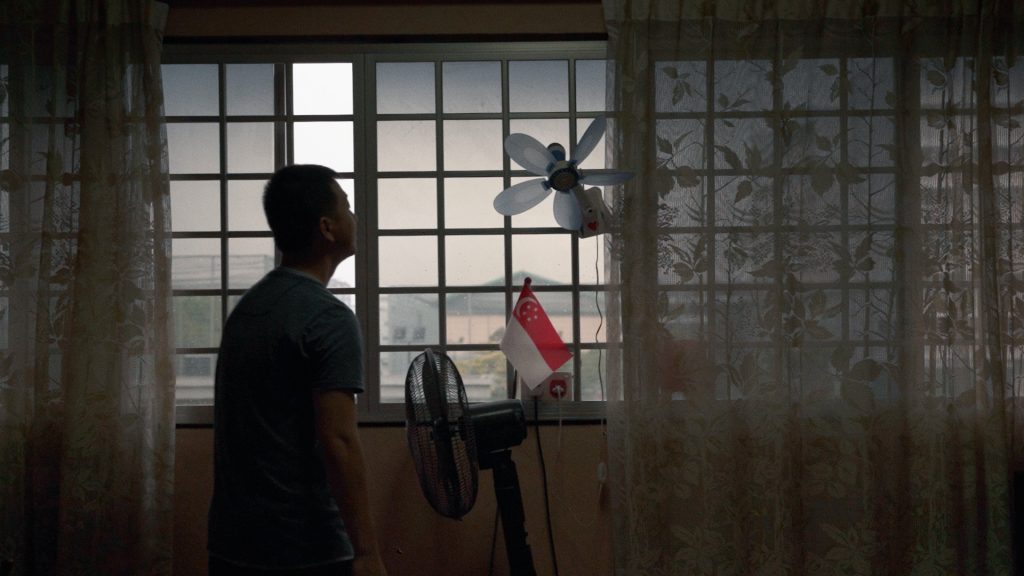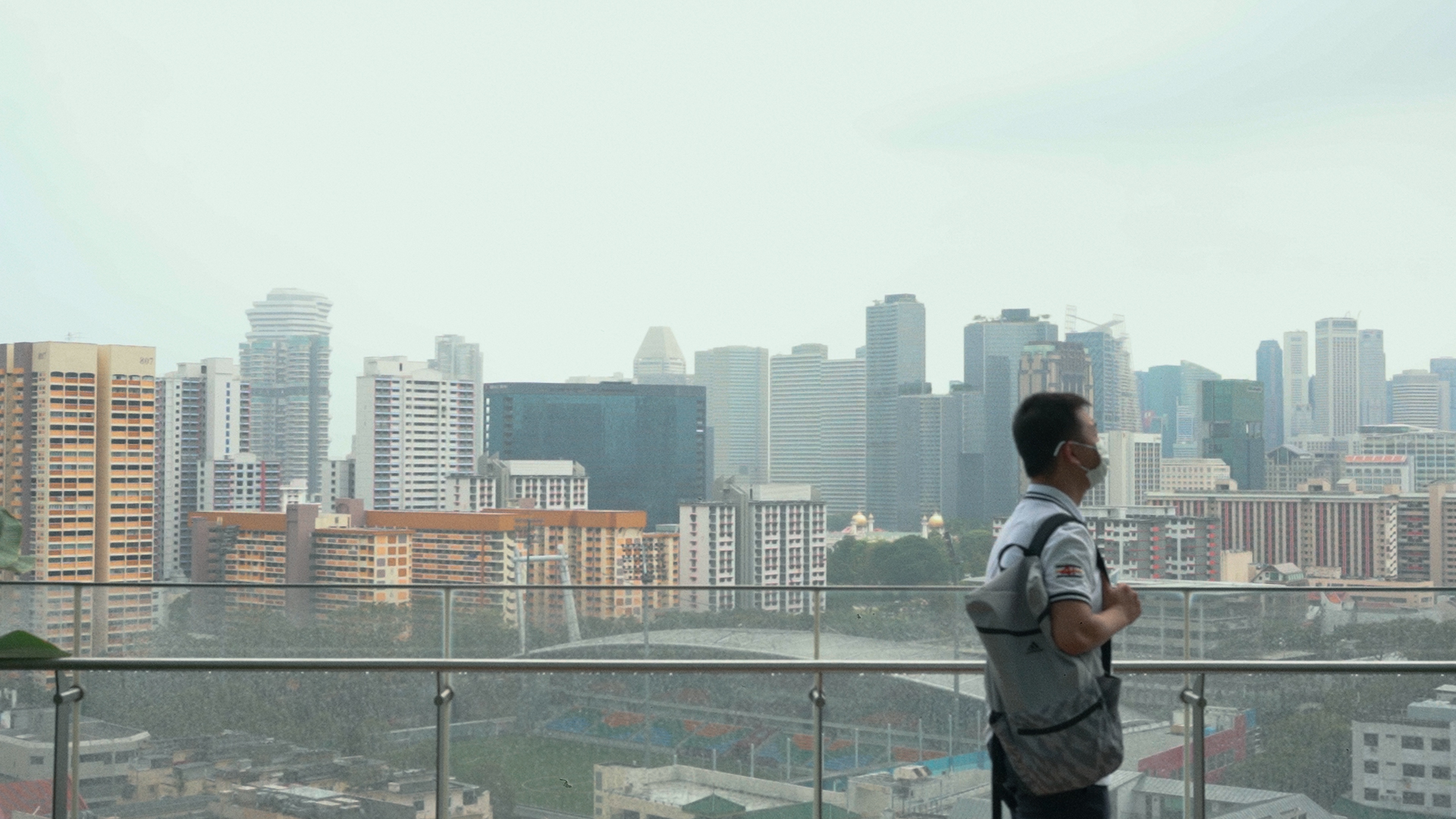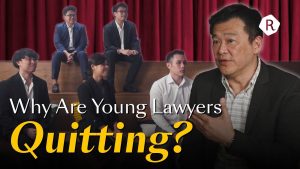This article is part of our new series on burnout, Running on Empty. Watch the third video in the series here.
The latest episode in our series Running on Empty documents the plight of Matt Oon: a start-up founder with a bad case of burnout. To be frank, the future doesn’t look bright for his six-year labor of love, Accesset. His financial resources are limited, and the product is not attracting new users.
Matt’s burnout is isolating: he doesn’t want to burden his wife or his family with his work troubles. He tries to compartmentalize his anxiety. Yet, it consumes him. The boundaries between work and the rest of his life are so blurred that his mind wanders off to his business problems whenever he tries to relax, exercise, or connect with friends and family.
I noticed this when I met him for the first time at a coffee shop near his co-working space. In conversational lulls, his gaze drifted towards the office tower and his shoulders sagged like there was a physical doom dragging him down.
Matt’s sense of doom comes from an internal pressure to please. He doesn’t want to fail his mentors, investors, or family. After spending time with Matt, I got the impression that failure is an experience he strives to avoid at all costs.

But for Matt, the costs of avoiding failure are mounting. He’s unable to hold a wedding, furnish his new flat, or have children due to his financial problems. From an outside perspective, it seems the most pragmatic solution to avoid further loss is to close shop and move on. But moving on from the start-up would require Matt to accept failure— the unthinkable phenomenon which triggered his burnout in the first place.
Singaporeans Are Afraid of Failure
When I spoke with Matt about his business woes, it seemed that he was avoiding a harsh truth: despite best efforts and pure intentions, some ventures do not succeed. Matt struggles to understand this. In my opinion, this is because his start-up is intimately connected to his personal journey with mental health. In his view, the failure of the product = the failure of his character.
The mental block which Matt encounters is not rare in Singapore. The fear of failure starts in the early years. In a study on local students, 72% of young respondents “worried what others would think of them if they failed.” Further, 78% of those students struggled to imagine a positive future following an academic failure.
Later in life, this aversion to failure disrupts one’s ability to cultivate an entrepreneurial spirit. In a study conducted by Telstra on digital transformation in the workplace, Singapore fared poorly in comparison to other major cities on crucial areas of growth: innovation and talent.
In a panel discussion of the Telstra survey, one expert acknowledged that the fear of failure contributed significantly to the gaps cited in the study. “In corporate society in Singapore, failure is not in the dictionary.” Another expert concurred: “There hasn’t been enough learning through failure [in Singapore].”
But it’s not just the individual who suffers from an aversion to failure. Corporate culture is held back by this fear, too. Scott D. Anthony, a senior partner at an investment firm in Singapore, noted this throughout his career. “Most corporate cultures fear failure so viscerally that they lock up great talent in a fatally flawed project, investing resources well past the point where everyone can see that the plug should have been pulled.”
Matt’s predicament has elements of the scenario outlined above. In our conversation, he mentioned that his friends in the corporate world have told him there is a lucrative career beyond the start-up. Yet, he continues to compromise his financial and mental health in his effort to avoid failure.

Is There A Right Time to Fail?
So, we’ve established a few things thus far: failure has a negative connotation in Singapore, and the fear of failure can lead to individual burnout and a lack of creative problem solving in the workplace. Why are we afraid of failure, and what do we lose from rejecting it? When do you write off a challenge as a failure, and what can you learn from that?
To answer these questions I spoke with Fiona Maher O’Sullivan, the co-founder of InContact Singapore. In her practice, Fiona offers corporate training and psychological intervention for workplace tragedies and employee burnout.
Here’s what she had to say.
Q: Why are we so afraid to fail, and why do we overwork ourselves to avoid it?
A: Because failure makes you vulnerable. In Singapore, there’s an emphasis on maintaining a strong face. You put up pretenses by saying you’re doing well and smiling. Small talk revolves around superficial things: what car you drive, where you live, how you make money. It’s more about what you have than who you are, at times.
Q: Is ‘saving face’ a bigger deal in Singapore?
A: It happens everywhere, but I’d say it’s more prevalent here. I’ll give you an example: a client of mine is a start-up founder in Singapore. He’s very concerned with projecting an air of success but he’s the only employee so far. So, he’s created a bunch of different email handles, essentially fake employees, so people will think he has a large team when he’s doing business correspondence. It’s all for show.
Q: When does this idea of projecting success begin?
A: In addition to working in the corporate world, I also work with children and parents. That’s when I really noticed that the fear of failure was a systemic issue. Singapore has a way of segregating certain people by streaming. There are barriers to success. There’s a lot of pressure to figure out who is going to be successful or not by a very young age. This contributes to success being viewed as one specific kind of thing. With so much pressure on these kids, they don’t get the time to play, or really be imaginative. So when they grow up and they’re expected to think out of the box—for example, entrepreneurs need to do that—these kids haven’t been given that space.
Q: Is that why we have difficulties with cultivating talent and innovation in Singapore?
A: As I mentioned earlier, kids in the schooling system here are not really given the chance to think outside the box. To be an entrepreneur or an innovator you have to be open to seeing some changes in process when you have a big idea. Drive and ambition are important, but you also need to be grounded in order to assess if something is working or not. Being unable to do that is where the burnout starts, I think.
Q: What are the signs of ‘failure’ burnout to look out for, as an entrepreneur for example?
A: Entrepreneurs tend to have unrelenting standards and a lack of boundaries. This is often because of a deep rooted fear of failure. They tend to take the failure personally, or believe: ‘If I don’t make this specific venture work, then I am a failure.’ When you’re losing control and the reality of the situation is not lining up. If there’s no sales, and there’s nothing happening, you have to be able to sit down and review. A good entrepreneur will see that something isn’t working and switch to another facet. If you’re stopping everything in your life and feeling like you have to make it work in spite of the reality, that’s a sign that you’re burning out and you need to switch gears.
Q: What are the dangers of persisting ‘in spite of the reality’ through burnout?
A: There are a lot of people, men especially, who choose to end their lives instead of admitting they’ve failed. Because you’ve exhausted your brain in burnout, it seems like that’s an easier option than sitting down and working through it. We often go into companies here to counsel employees after a traumatic event like that. Burnout has very isolating side effects. People shut down from talking to their partners and their colleagues, so then it becomes all consuming. If you keep compounding your issues, eventually your mind will burst.

Q: How do you treat someone who is burnt out to the point where they can’t see the forest for the trees?
A: Well, first I’d recommend seeing a counselor or a life coach. Speaking about what you’re experiencing is really important, because it’s the bottling up of emotion that leads to severe burnout. You also have to slow down. A lot of people need to get in touch with the body by being grounded, and feeling present in the moment. A little bit of meditation and mindfulness can be helpful. Also, building up the emotional bank. Your emotional bank is a very important tool to protect. It’s an internal resource where you do things that give you a ‘feel good factor.’ Cultivating a hobby, finding an exercise you really like, treating yourself to a nice meal. Those things fill up the emotional bank.
Q: When is the right time to fail, and how do you do it?
When you’re losing out on every field, that’s when it’s time to give up. It can be helpful to set yourself a realistic and firm deadline. When your family isn’t benefitting, you’re burnt out, and the company is stagnating—that’s a sign that you should set a firm deadline to end the venture. It helps to have a mentor in this process, too. A lot of people have big ideas, but they don’t have a mentor. You need a structure and someone with experience to advise you when it’s time to take a different approach.
Q: Finally, what can we learn from a failure?
A: There is always something positive to learn from a failure. It might not feel positive in the moment, but often you’ll look back and see that failing was the best thing that ever happened to you. When you don’t succeed, you gain a new perspective. Trial and error is a key part of innovation. The sooner you are able to cut your losses, and take your skills to the next opportunity, the faster you’ll cultivate your best working self. This applies to your interpersonal skills, too. Life is messy. Just because you want something to work, doesn’t mean that it will. Learning that in the early stages of your life sets you up for a healthier and happier future.







